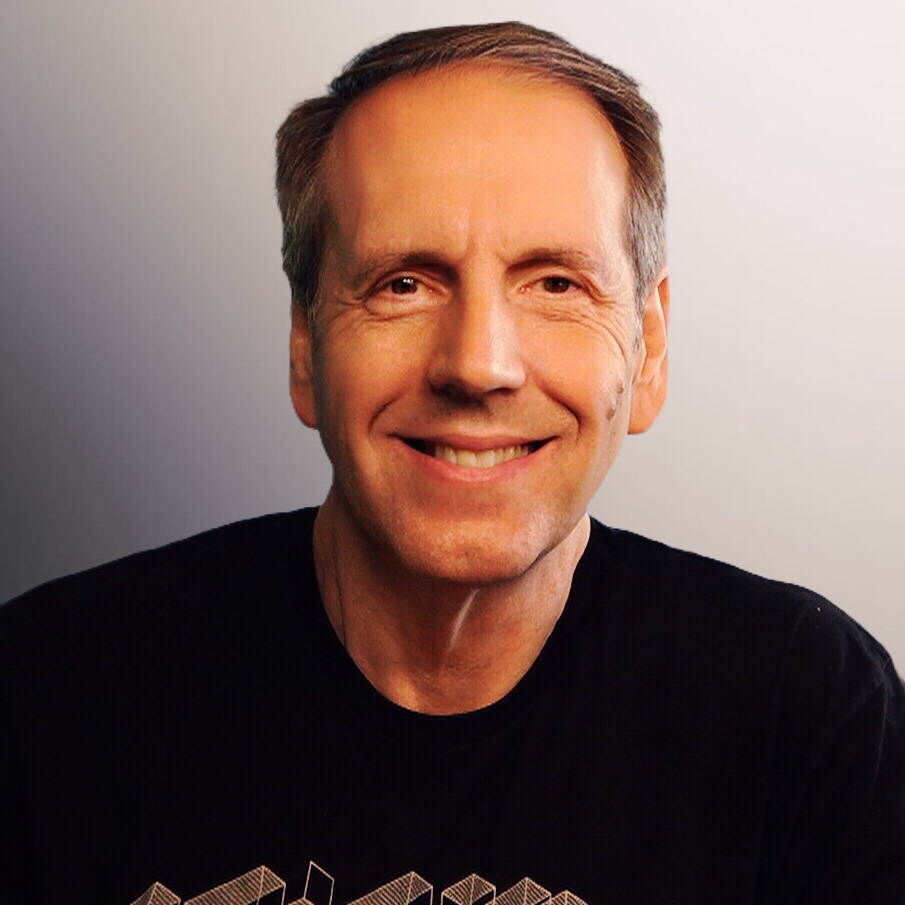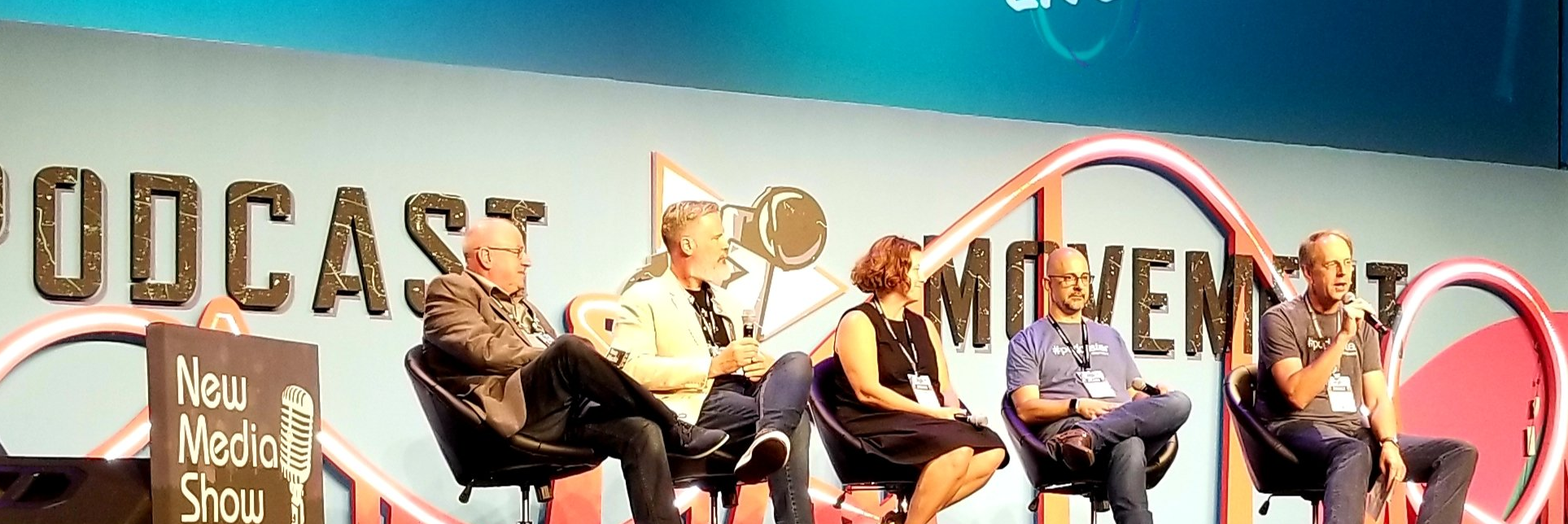
By Rob Greenlee
(12/18/2020) Podcasting globally is growing fast in all aspects and is increasingly diversified around gender, ethnicity, and race. We are seeing innovation and talented people entering the podcasting medium in many areas now that is becoming increasingly less about speaking into a microphone to host a podcast show and increasingly around the business of podcasting.
Podcasting has been increasingly upping the quality game of content development. The listening platforms compete for users by pushing the envelope around discovery metadata for search, production and marketing support, full transcriptions, and monetization.
Advertising revenue is up less than expected before COVID-19 but is up still and will continue to grow and accelerate into late 2021. Reaching $1 Billion+ in ad revenue will take longer than many have hoped, and filling more podcasts with spots that value podcast ad inventory, whether baked-in host reads or prerecorded dynamically inserted talent reads with higher CPM, is key.
Privacy and changes to Internet protocol IPv6 will continue to impact digital advertising. It will hold back podcast advertising as long as we rely too much on IP targeting and selling IPs of listeners to re-target advertising.
Global listening, content creation, and monetization from all parts of the world are key to the rapid and sustained growth of the medium.
What have been the big podcasting stories over the last year?
Global growth and expansion started many years ago by Apple iTunes Podcasts and has seen gradual and faster expansion by listening services platforms like Spotify, Deezer, Gaana, Amazon, and iVoox. The expansion to new listening platforms around the world is not done yet.
Content production companies like BBC, CBC, ABC Australia, and many other smaller audio creation companies like SoundCartel in Australia and Kelly & Kelly in Canada have shifted from radio audio to podcast audio production services.
Who has benefited the most in the podcasting space over the past few years?
Benefits from podcasting vary and depend on podcasters’ goals and achieving those. I am not sure that I can say who has benefitted the most from the growth and development of podcasting over the past few years, but I can comment on how many have benefited.
I know that many people help their work careers, grow their brands, grow a businesses, gain direct revenue from donations, earn paid subscriptions, and build advertising revenue with a podcast.
Many think big corporate podcasting and the largest audience podcasts have benefitted the most. This assumes that podcast monetization, VC investments, mergers, and acquisitions are the most important factors in who has benefitted the most. Still, all these advancements and attention have helped independents and corporate podcasting, which sometimes can be independent podcasters.
The line between corporate and independent podcasting is getting less clear as so many individuals build teams around their productions and big companies.
What are the chances an independent podcaster can become successful in today’s podcasting world without being part of a network?
I believe this has not changed much since the early days of podcasting. As long as podcasting remains dominated by independent creators and the industry keeps supporting opportunities for those types of creators, it will be a 16-year-old new medium that continues to offer a level playing field.
It is also true that larger companies and networks are getting more attention than ever. That increasing attention, size, and cash resources are driving increasing success for some of these companies. It is also true that the number of employees and money resources do not guarantee success in the podcasting space.
Successful content can come from anywhere in the podcasting or media space. Larger companies can have some advantages in the market, and market forces are helping to increase the advantage to larger listening publishing platforms. However, content creation is still where the medium is a blank canvas of opportunity as the cost of quality audio production continues to fall.
How successful can an independent podcaster be as part of a network?
A key question in today’s podcasting space is a podcast that is part of a large network of independent podcasts. I think it is if the content is still wholly owned independently by the creator.
Some networks have owned and operated podcasts where the talent is hired to produce the podcast. However, independent podcasters affiliated with a large or smaller network own all the rights to their content but still can potentially get support from a network.
I consider the podcasts that the hosts still own all the rights to be independent podcasters. I think the definition of an independent podcast has been confusing for many. Some have judged some shows as not part of the indie side of podcasting when they are independent podcasts while being part of a big corporate media or podcasting company.
I believe Quality Cream rises to the top in podcasting; all a podcast needs to do is spark word-of-mouth sharing in its listener base, and it will grow over time if trust and value exchanges are created in people’s lives.
Has the measurement issue been solved?
We have solved the measurement issue as much as we can at this moment in time.
The future of podcast measurement is facing some very large challenges shortly as we struggle to obtain client-side listening data, the very limited path to listener opt-in tracking, internet protocol (IPv4 to IPv6) technology, elimination of the cookie, and growing privacy-related global legal restrictions change and develop.
As we face all the above challenges, we must always keep in mind that podcasting has been rooted for 16 years in being mostly a non-commercial medium that is free, open, and accessible.
It is important to continue recognizing the trust-building rooted in the medium’s history in protecting listeners’ privacy. This trust-building has resulted in strong ROI via host reads ads without violating listener privacy.
Has the discovery issue been solved?
The discovery issue has never existed in the way it has been commonly understood. Many complain that podcast discovery is the core reason their podcasts have not grown in the audience they have as fast as they would like.
The discovery of podcasts can certainly be better. Still, most of that issue falls on the backs of the podcast creator and how well they have developed the topics and program, show marketing and promotion, website SEO, and their efforts to inspire the audience sharing to others.
What is the best advice you could give someone thinking about podcasting today?
I mostly give the same advice today as I did years ago. The opportunity to succeed in podcasting has not changed. It just takes planning and goal setting, focus on relevant content, good-sounding audio, an aggressive distribution, and a promotion plan that connects with listeners.
What will happen in the future in the podcasting space?
The podcasting medium will keep steadily growing in all areas in the near and long term. It is up to all of us to evolve podcasting in a way that preserves its roots as a trusted and level playing field for all to contribute and participate.
Rob Greenlee is the Former Chairperson of The Podcast Academy “Ambies Awards” and was inducted into the Academy of Podcasters Hall of Fame in 2017. His career started around offline and then online marketing. Then, on the radio in 1999 and podcasting on Sept 15, 2004, with the first nationally syndicated radio show, “WebTalk World Radio Show”. He co-hosts the “New Media Show,” a weekly audio and video podcast streaming LIVE at NewMediaShow.com. Connect with Rob at rob. greenlee(at)gmail(dot)com.
He is available for podcast interviews and other media opportunities here – Calendly.com/robgreenlee/

I want to go live and talk about my new podcast on Spreaker on Wednesday